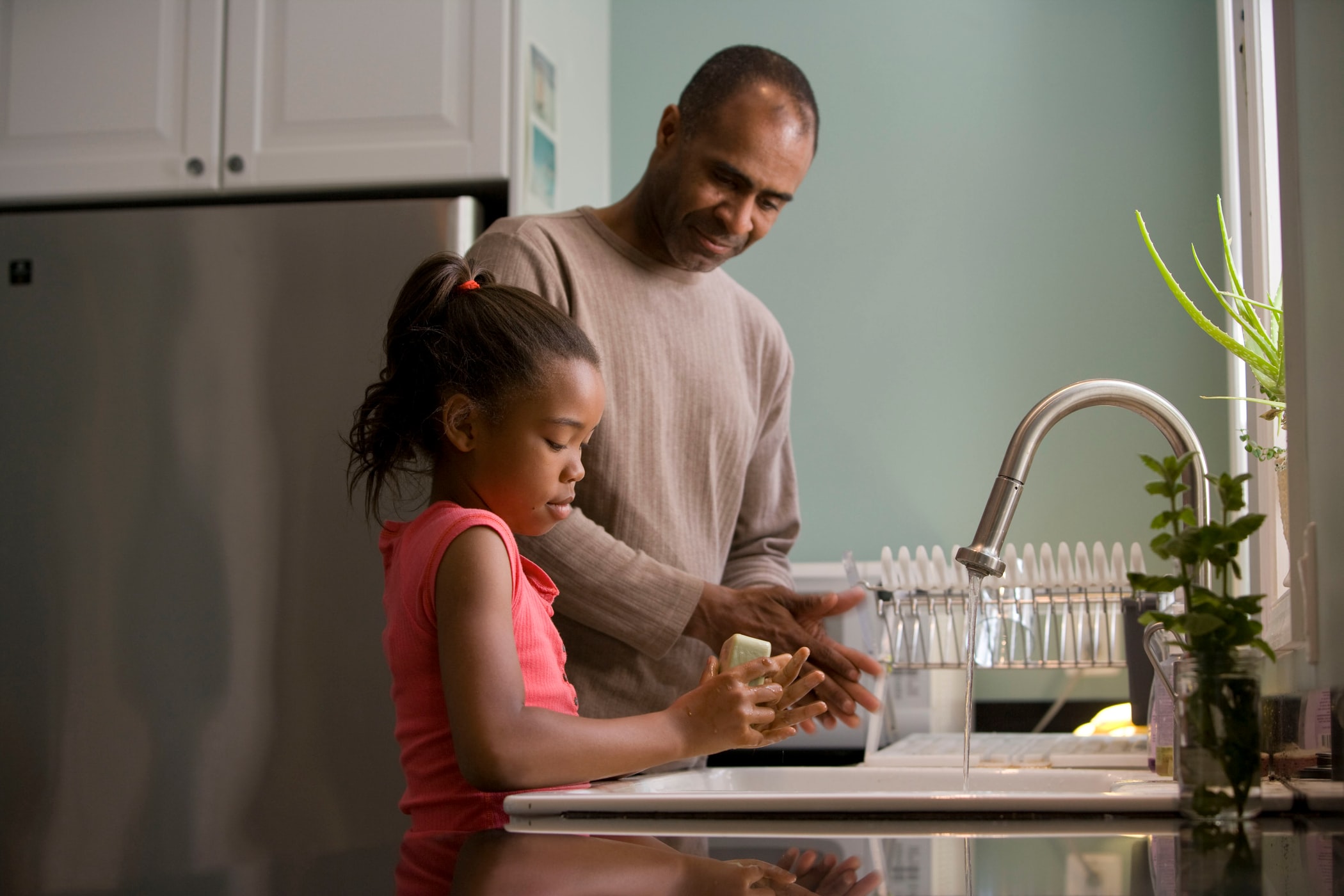With the rise of novel coronavirus (COVID-19), hand-washing has become more prominent as a health measure. Proper hand-washing shouldn’t just be a concern during outbreaks infectious disease, though — it’s essential at any time. Many preventable diseases are spread via dirty hands.
How do germs get onto your hands?
Pathogens (germs) are very easy to transmit if you don’t wash your hands properly. There are many ways that bacteria, viruses, and other pathogens can get onto your hands.
Coughing and sneezing into your hands can quickly transfer germs to your skin. So can touching your nose, eyes, or mouth.
Feces is a significant source of pathogens, whether it’s from animals or people. Microbes found in feces are responsible for food poisonings, such as E. coli and salmonella. Norovirus is also transmitted this way, causing severe diarrhea and vomiting. Contamination with feces can also cause certain respiratory infections.
It’s common for these microbes to find their way onto people’s hands after using the bathroom, changing a baby’s diaper, or perhaps cleaning up after a pet. They may also get onto your hands if you handle raw meat or poultry; sometimes, these foods become contaminated with bacteria during processing. Once they’re cooked the pathogens are destroyed. In their raw state, they can be a dangerous source of infection.
Why are pathogens on your hands dangerous?
Once the pathogens are on your hands, they are easily transferred to you or others. When you shake hands or handle an item that someone else then touches, they can pick up those pathogens. Food and eating or drinking utensils are particularly risky in this regard. For example, if you handle a cup with dirty hands and someone else drinks from it, they may ingest any pathogens that were on your fingers when you touched it.
The more items you touch in between hand-washings, the more potential there is for contamination. Thank of all the surfaces that you touch during the day. You might handle utensils in the kitchen when you make breakfast, touch the door handle when you leave, then touch handrails and buttons on public transport. At work, you will probably come in contact with multiple items such as telephones, door handles, tools, or other objects that the people around you may also handle.
Once someone has picked up the pathogens left on these surfaces, they may touch their faces and transfer the pathogens to their mouths, noses, or eyes. People may also transfer those pathogens to fresh surfaces, where even more individuals can pick them up. Some germs can live for hours, days, or even weeks outside of the body, waiting to be picked up by an unwitting host.
How long should you wash your hands?
Proper hand-washing could prevent as much as 80 percent of infectious diseases. It’s essential to wash your hands after every visit to the bathroom, and any time you might have come into contact with a contaminated surface.
The World Health Organization (WHO) recommends washing your hands for at least 20 seconds. Use clean water, preferably warm, and soap. While the soap doesn’t kill most pathogens, it does remove them from your hands. Make sure you clean every part of your hands: fronts, backs, sides, in between your fingers and underneath your nails.
If you can’t access clean water, you may substitute hand sanitizer or alcohol wipes. These are less effective than washing thoroughly with soap and water; however, so should only be used when that’s not an option.
Preventing sickness through hand-washing has multiple benefits for society, especially the most vulnerable members. Children, the elderly, and those with compromised immune systems can become seriously ill if they acquire these preventable diseases. Because it cuts down the number of people who need antibiotic treatments, proper hand-washing also helps prevent antibiotic resistance from evolving bacteria. It also helps avoid spreading infections that are already resistant. Through this simple measure, we can all make the world a healthier place.
Tap for recommended posts on the tags you don’t follow






